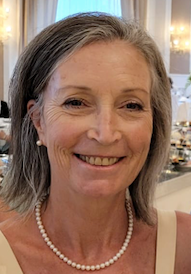 The Second-Order Researcher
The Second-Order Researcher
A practitioner-researcher or second-order researcher is an ‘insider’ academic who studies a phenomenon in their workplace or profession and outside the university. The first-hand researcher, or ‘outsider’, is the academic whose career lies within the university and who does not practice the profession or workplace they study (Losito, Pozzo & Somekh, 1998).
The appreciation of practitioner research in the field of education is a relatively new one, and research methodologies for professionals, such as Action Research (AR), were unheard of until Kurt Lewin coined the term in the 1940s (Baumfield, Hall & Wall, 2017). Later on, in 1996, Hargreaves (1996) suggested that the teaching profession could become a research-based profession similar to the medical one, which is established normality (Murray & Aymer, 2008). This blog post will present one issue, two possible solutions, and a question regarding research in professional practices, notably teaching, compared to the medical profession.
Issue
Murray and Aymer’s (2008) research points out a considerable difference between second-order medical research and the teaching profession. It explains that research and practice are easily combined and encouraged in the former, leading to promotion in medical practices. They note that the same is not valid for teachers whose lesson plans, activities and textbooks are not taken seriously by the Research Assessment Exercise (REF, 2021). This disparity is a shame because practitioners can often better recognise areas needing action (Costly, Elliot & Gibbs, 2010). In summary, this blog would like to raise the issue that the teaching profession is not respected academically. Therefore, teachers do not share their expertise as practitioners do in medicine.
Solutions
As far as solutions are concerned, the following two possibilities are proposed:
- If teachers were given similar encouragement as medical doctors, both financially and regarding career development, they might be more motivated to share their expertise through publication;
- Understanding the theories feeding educational enquiry and the craft of academic writing would help teachers to navigate their way through academia and probably contribute towards improving their practices. These skills can be achieved by working towards a professional doctorate such as the EdD. Universities such as the Open University and others in Australia, North America, and the EU offer professional doctorates to teachers and other professionals (Barnacle, 2017). Another option could include education enquiry in teacher-training courses (Burnaford, Fischer & Hobson (2001).
Nevertheless, these solutions highlight two of the many challenges professionals face if they want to share their expertise with an academic audience. Practitioner research in all fields is often undervalued and compared adversely to university research (Thomson & Gunter, 2010). Furthermore, publishing in any area is competitive, and teachers, in particular, have difficulty publishing their work without adequate training in enquiry (Davis, 2019).
Question
In conclusion, the question posed by this blog post regards your experience as a practitioner-researcher. What is the situation in your workplace? Are your colleagues interested in publishing? What are the challenges of second-order researchers in your field of practice?
By Lesley Fearn @lesleyfearn

